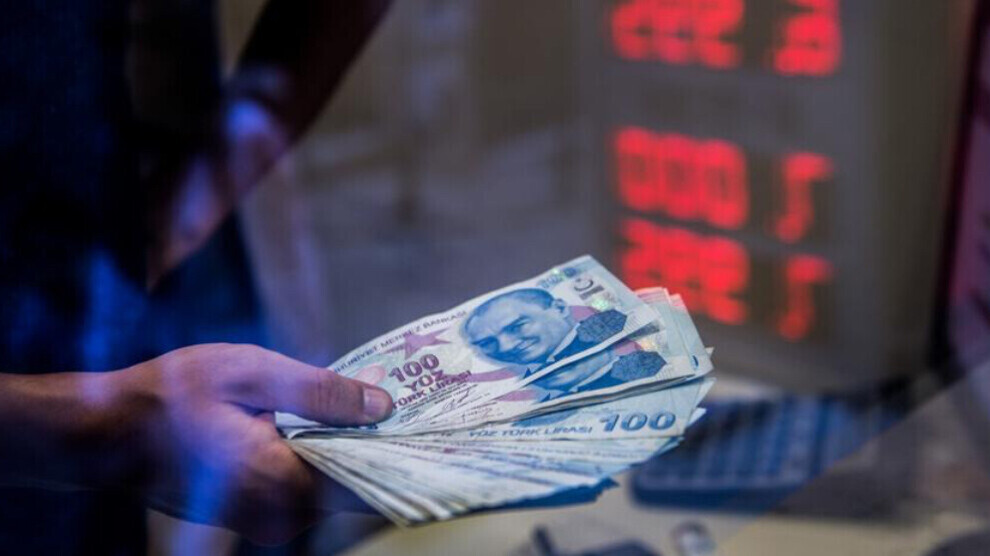Turkish lira in free fall under AKP's 'Turkey Model'
The Turkish economy, battered by war and the regime's power politics, continues to collapse. The national currency, the lira, has once again fallen to a record low.
The Turkish economy, battered by war and the regime's power politics, continues to collapse. The national currency, the lira, has once again fallen to a record low.

Under the "Turkey Model" imposed by the ruling AKP, the Turkish lira has suffered another heavy depreciation. The US dollar exceeded 14.75 and the Euro exceeded 16.65 on Monday.
This week started with a sharp decline for the Turkish lira, which crashed to a record low of 14.75 to the dollar, 16.65 to the euro and 19 to sterling for the first time.
Speaking to pro-government media outlet Habertürk, Turkish Finance Minister Nureddin Nabati argued that the economic model Turkey has recently adopted is neither the "China model nor the South Korea model", but the "Turkey Model".
This week, 20 central banks, including Turkey’s Central Bank, will hold their annual meeting. The Turkish Central Bank is expected to cut 100 basis points. Following the instructions of Turkish President Recep Tayyip Erdogan, the Central Bank has intervened in exchange rates three times since the beginning of December.
Previously, Erdogan claimed that "interest is the cause and inflation is the result”, vowing that they would not back down from their low interest policy.
While the Central Bank stated that it would cut interest rates, inflation rose to at least 20 percent. The Turkish lira has lost more than 40 percent of its value against the dollar since the beginning of the year. Experts say that foreign capitals will leave Turkey very soon.
In the meantime, according to Bloomberg HT, Zurich-based Swiss bank UBS revealed that it would no longer publish a report on the Turkish Lira. UBS asked investors to ignore its latest advisory reports on the Turkish lira.
The unemployment rate stood at 11.2 percent in October, according to official statistics. The actual figures, however, are thought to be much higher. The Turkish Statistical Institute (TÜİK) has long been criticized for being under the influence of the AKP. All data published by the institution is considered suspicious.
“There is evidence that the data of TÜIK does not reflect the truth. A prominent economist, Steve Hanke, said that inflation in Turkey is three times more than the official data. In other words, if it is currently 20 percent according to TÜIK, it means 60 percent in reality. Independent economists are also making calculations and say that it is not less than 40 percent. Therefore, we think that there is manipulation as well," HDP Deputy Erol Katırcıoğlu said in an interview with ANF on November 23.
Workers and laborers in the country suffer from the political and economic policies pursued by the AKP regime. The current economic crisis was protested in a demonstration titled "We can't make our living" organized by trade unions in Istanbul on Sunday.
“We are getting poorer each day. What they call liberation is the liberation of their seats. They have subjected this country to the worst minimum wage in Europe. The minimum wage is lower in Turkey today than in China since the government relied on the Chinese model based on cheap labor,” DİSK (Confederation of Revolutionary Workers’ Unions) Chair Arzu Çerkezoğlu said.
“Turkey ranks first in the misery index,” HDP Co-Chair Pervin Buldan said during the budget talks on December 6.
“The per capita income, which was 12 thousand dollars during the ‘solution process’, has decreased to 8 thousand dollars today. You spent 4 thousand dollars per person on the war,” Buldan said, criticizing the government.